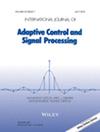Neural Operator Approximations for Boundary Stabilization of Cascaded Parabolic PDEs
IF 3.9
4区 计算机科学
Q2 AUTOMATION & CONTROL SYSTEMS
International Journal of Adaptive Control and Signal Processing
Pub Date : 2024-09-02
DOI:10.1002/acs.3902
引用次数: 0
Abstract
This article proposes a novel method to accelerate the boundary feedback control design of cascaded parabolic difference equations (PDEs) through DeepONet. The backstepping method has been widely used in boundary control problems of PDE systems, but solving the backstepping kernel function can be time‐consuming. To address this, a neural operator (NO) learning scheme is leveraged for accelerating the control design of cascaded parabolic PDEs. DeepONet, a class of deep neural networks designed for approximating nonlinear operators, has shown potential for approximating PDE backstepping designs in recent studies. Specifically, we focus on approximating gain kernel PDEs for two cascaded parabolic PDEs. We utilize neural operators to map only two kernel functions, while the other two are computed using the analytical solution, thus simplifying the training process. We establish the continuity and boundedness of the kernels, and demonstrate the existence of arbitrarily close DeepONet approximations to the kernel PDEs. Furthermore, we demonstrate that the DeepONet approximation gain kernels ensure stability when replacing the exact backstepping gain kernels. Notably, DeepONet operator exhibits computation speeds two orders of magnitude faster than PDE solvers for such gain functions, and their theoretically proven stabilizing capability is validated through simulations.级联抛物型多项式方程边界稳定的神经算子近似值
本文提出了一种通过 DeepONet 加速级联抛物线差分方程(PDE)边界反馈控制设计的新方法。反步法已被广泛应用于 PDE 系统的边界控制问题,但求解反步法核函数非常耗时。为了解决这个问题,我们利用神经算子(NO)学习方案来加速级联抛物型 PDE 的控制设计。DeepONet 是一类专为逼近非线性算子而设计的深度神经网络,在最近的研究中已显示出逼近 PDE 反步设计的潜力。具体而言,我们将重点放在近似两个级联抛物线 PDE 的增益核 PDE 上。我们利用神经算子只映射两个核函数,而另外两个核函数则使用解析解计算,从而简化了训练过程。我们确定了核函数的连续性和有界性,并证明存在任意接近核 PDE 的 DeepONet 近似值。此外,我们还证明了 DeepONet 近似增益核在替代精确的反步进增益核时能确保稳定性。值得注意的是,对于此类增益函数,DeepONet 算子的计算速度比 PDE 求解器快两个数量级,其理论证明的稳定能力也通过仿真得到了验证。
本文章由计算机程序翻译,如有差异,请以英文原文为准。
求助全文
约1分钟内获得全文
求助全文
来源期刊
CiteScore
5.30
自引率
16.10%
发文量
163
审稿时长
5 months
期刊介绍:
The International Journal of Adaptive Control and Signal Processing is concerned with the design, synthesis and application of estimators or controllers where adaptive features are needed to cope with uncertainties.Papers on signal processing should also have some relevance to adaptive systems. The journal focus is on model based control design approaches rather than heuristic or rule based control design methods. All papers will be expected to include significant novel material.
Both the theory and application of adaptive systems and system identification are areas of interest. Papers on applications can include problems in the implementation of algorithms for real time signal processing and control. The stability, convergence, robustness and numerical aspects of adaptive algorithms are also suitable topics. The related subjects of controller tuning, filtering, networks and switching theory are also of interest. Principal areas to be addressed include:
Auto-Tuning, Self-Tuning and Model Reference Adaptive Controllers
Nonlinear, Robust and Intelligent Adaptive Controllers
Linear and Nonlinear Multivariable System Identification and Estimation
Identification of Linear Parameter Varying, Distributed and Hybrid Systems
Multiple Model Adaptive Control
Adaptive Signal processing Theory and Algorithms
Adaptation in Multi-Agent Systems
Condition Monitoring Systems
Fault Detection and Isolation Methods
Fault Detection and Isolation Methods
Fault-Tolerant Control (system supervision and diagnosis)
Learning Systems and Adaptive Modelling
Real Time Algorithms for Adaptive Signal Processing and Control
Adaptive Signal Processing and Control Applications
Adaptive Cloud Architectures and Networking
Adaptive Mechanisms for Internet of Things
Adaptive Sliding Mode Control.

 求助内容:
求助内容: 应助结果提醒方式:
应助结果提醒方式:


